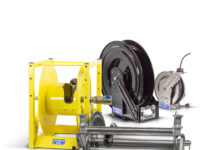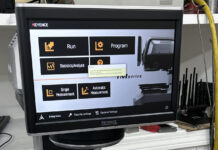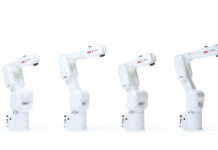Many consider FANUC to be a true pioneer in the development of education and certification programs in the United States. How did this all come about?
We have always been involved in strategic planning, working with our industry partners on projects that are one to five years out. So by reviewing various statistics we were able to see there would soon come a challenge in being able to acquire a trained, skilled workforce in the numbers that would be required. You can invest all the resources you’d like into developing new technologies, but if you don’t have the workers who know how to use it, then you haven’t quite met your goal. So that began a period of reevaluation. First of all, FANUC has one of the largest training centers in the world here in Rochester Hills, Michigan where some 6,000-7,000 students pass through our doors each year. But we came to realize that the closer we could get to the companies in need of this training – as well as the students who could benefit – the more effective our efforts would be. We needed to move into the community, to somehow provide them with a pipeline of skilled workers right in their own backyard rather than requiring students to travel to spend time with us. The first logical step involved working with community colleges and technical schools, which was met with a certain amount of success.
Then we realized that most students make their fundamental career decision much earlier than that, meaning we needed to reach them at an earlier stage in their educational development, such as high school. The goal was to give them a glimpse of what modern manufacturing is like right in their own classroom so they could see that it’s primarily a clean industry dominated by technology these days instead of the dated image they and their parents may hold from the past. As it now stands, we have more than 1,400 educational partners around the country, and employers are clamoring for graduates possessing their particular skill sets.
Has the COVID pandemic altered your approach to thinking about these issues, or reaching out to students and educational systems in any way?
It definitely has. For instance, within industry, you can see three sectors in particular – food production, supply chain, and medical equipment – that had become vulnerable because they were located so far outside the United States. It quickly became apparent how important it was to bring these three production centers, and many more, back home, and for that to succeed we needed more qualified workers, which meshed perfectly into what we were trying to accomplish. We had learned there were three central areas that a student needed to focus on in order to meet current industry demands: automation, process control technology and the digital thread. I remember one company coming to me and saying they currently had 200 job openings for graduates possessing knowledge in those skills, and another employer claiming as many as 2,000. These are the types of job opportunities that should be broadcast and communicated to high school students who are searching for a stable, good-paying job where they can use their minds as well as their hands. Not everybody requires a four-year college degree, and these types of programs can allow students to get started down their career paths much more quickly than traditional means.
Any other accomplishments or accolades you’ve achieved along the way you’d care to share?
FANUC America has always been proud that we provide education grants to each of our 1,400 education partners. These “gifts in kind” include instructor training, certification, curriculum, elearn, a complete bundle of advanced software, and 25 copies of our ROBOGUIDE programming virtual software. And we also continue our education outreach by standing as a Standard Recognition Entity for the Department of Labor at their request, for which we gathered a robust industry coalition in order to gain a wide range of perspectives and insights. It’s critical that all sectors of industry do their part in educating and recruiting the vibrant, skilled workforce we require to meet our potential as a country.











































